| Availability: | |
|---|---|
| Quantity: | |
| Product Name | neodymium-iron-boron magnets |
| Material | Neodymium Magnet/Permanet Magnet |
| Size | Various kinds or according to customers' request |
| Shape | Disc, Block, Ring, Countersunk, Segment, Trapezoid, Irregular shapes are available, Or Customized Shapes |
| Grade | N35-N52, N35M-N50M, N33H-N48H, N30SH-N35SH and so on |
| Tolerance in size | +/-0.05 mm |
| Direction of magnetisation | Through the thickness or through the diameter |
| Applications | 1. Electronic areas: speakers, headphones, acoustics, sensors and so on. 2. Motor areas: generators, servo motors, micro-motors, vibration motors, elevator motor and so on. 3. Clean Tech Energy: Water flow enhancement, wind turbines. 4. Health care: MRI, medical treatment equipment. 5. Other industries: electric doors and windows, electric vehicle, electric bicycles, computer, phone, boxes, magnetic tools, notebook and so on |
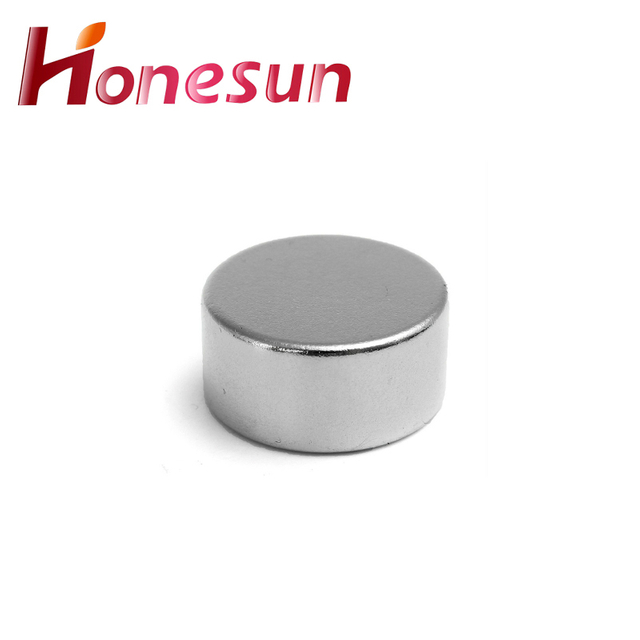
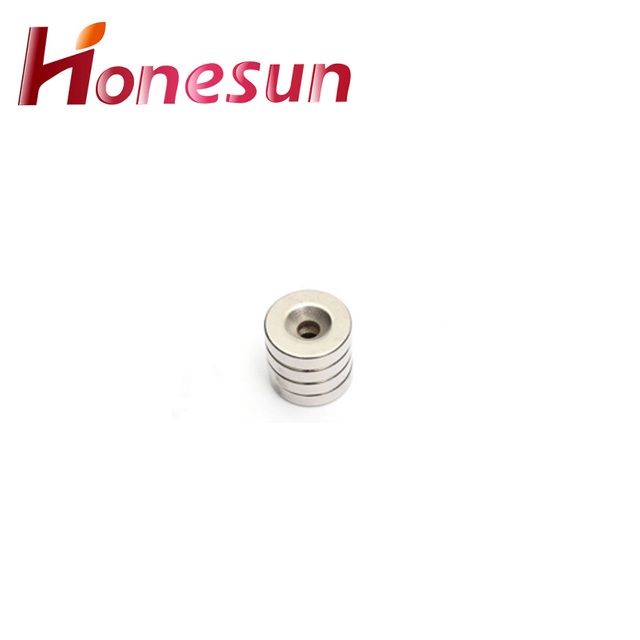
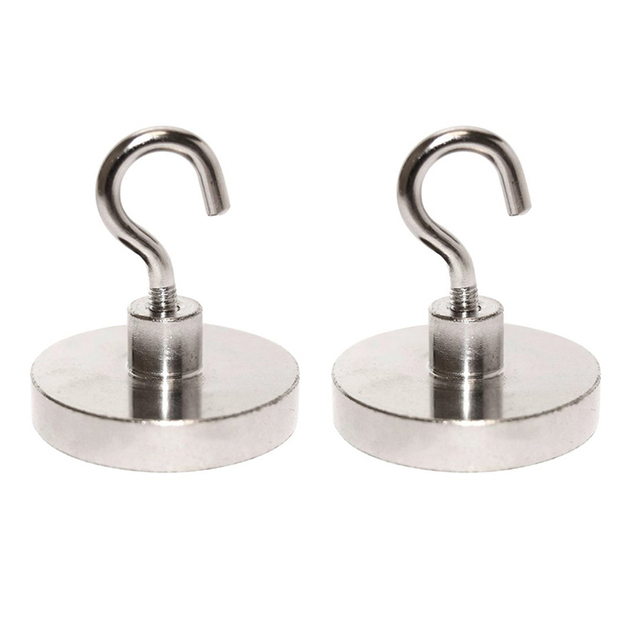
1.Can neodymium-iron-boron magnets be magnetized in different directions?
Yes, neodymium magnets can be magnetized in different directions. This is done by using a special magnetizing tool that applies a magnetic field in the desired direction.
2.Can neodymium-iron-boron magnets lose their magnetism over time?
We focus on teamwork and communication to achieve common goals, We attach great importance to this detail. Yes, neodymium magnets can lose their magnetism over time. This is due to a process called demagnetization, which occurs when the magnet is exposed to high temperatures, strong electrical currents, or other magnets.
3.Are neodymium-iron-boron magnets used in headphones and speakers?
Our company has many years of neodymium-iron-boron magnets experience and expertise. Yes, neodymium magnets are used in headphones and speakers. They are used to create a strong magnetic field that helps to produce a clear and powerful sound.
4.Can neodymium-iron-boron magnets be custom-made for specific applications?
Yes, neodymium magnets can be custom-made for specific applications. Depending on the application, the size, shape, and strength of the magnet can be tailored to meet the specific requirements.
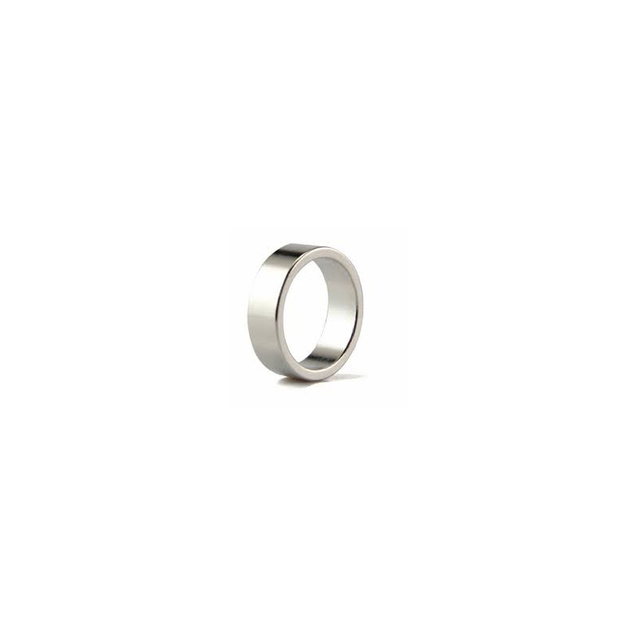
5.What are the common uses of neodymium-iron-boron magnets?
We operate our neodymium-iron-boron magnets business with integrity and honesty. 1. Motors: Neodymium magnets are used in the production of electric motors, such as those found in cordless tools, hard disk drives, and electric vehicles. 2. Speakers: Neodymium magnets are used in the production of loudspeakers, headphones, and microphones. 3. Sensors: Neodymium magnets are used in the production of sensors, such as those found in medical imaging equipment. 4. Generators: Neodymium magnets are used in the production of generators, such as those found in wind turbines. 5. Magnetic Separation: Neodymium magnets are used in the production of magnetic separators, such as those found in recycling plants. 6. Jewelry: Neodymium magnets are used in the production of jewelry, such as magnetic bracelets and necklaces.
6.About neodymium-iron-boron magnets production management system
Neodymium magnets production management system is a software solution designed to help manufacturers of neodymium magnets manage their production processes. The system provides a comprehensive set of tools to help streamline production, from tracking orders and inventory to managing quality control and production scheduling. It also provides detailed reporting and analytics to help manufacturers make informed decisions about their production processes. The system is designed to be user-friendly and intuitive, allowing users to quickly and easily access the information they need.
7.How do neodymium-iron-boron magnets compare to Samarium Cobalt Magnets?
neodymium-iron-boron magnets is not a product only, but also can help you comes to money-making. Neodymium magnets are the strongest type of permanent magnet available, and they are much stronger than samarium cobalt magnets. Neodymium magnets are also much more affordable than samarium cobalt magnets, making them the more popular choice for many applications. Neodymium magnets are also more resistant to corrosion and temperature changes than samarium cobalt magnets.
8.About neodymium-iron-boron magnets R&D capabilities
Neodymium magnets are a type of rare earth magnet that is composed of an alloy of neodymium, iron, and boron. They are the strongest type of permanent magnet available and are used in a wide range of applications, from consumer electronics to industrial machinery. Neodymium magnets are highly resistant to demagnetization and have a high coercivity, making them ideal for applications that require a strong magnetic field. Neodymium magnets are typically produced through a process of powder metallurgy, which involves mixing the alloy components together and then pressing them into a mold. The resulting magnets are then heat-treated to increase their coercivity and strength. Research and development of neodymium magnets is ongoing, with new alloys and manufacturing processes being developed to improve the performance of these magnets. Research is also being conducted into new applications for neodymium magnets, such as in medical imaging and renewable energy technologies.

9.About neodymium-iron-boron magnets production equipment
Neodymium magnets are a type of rare earth magnet that is made from an alloy of neodymium, iron, and boron. They are the strongest type of permanent magnet available and are used in a variety of applications, including motors, generators, and loudspeakers. The production of neodymium magnets requires specialized equipment, such as a vacuum furnace, a press, and a sintering furnace. The process begins with the mixing of the neodymium, iron, and boron powders in the correct proportions. The mixture is then placed in a vacuum furnace and heated to a high temperature. This causes the powders to melt and form a homogenous alloy. The alloy is then placed in a press and formed into the desired shape. Finally, the formed alloy is placed in a sintering furnace and heated to a high temperature, which causes the alloy to become a permanent magnet.
10.Are neodymium-iron-boron magnets affected by extreme temperatures?
Yes, neodymium magnets can be affected by extreme temperatures. They can become brittle and crack if exposed to temperatures above 175°C (347°F). They can also lose their magnetism if exposed to temperatures below -45°C (-49°F).
11.About neodymium-iron-boron magnets production skills training
Neodymium magnets are a type of rare earth magnet that is made from an alloy of neodymium, iron, and boron. They are the strongest type of permanent magnet available and are used in a variety of applications, from consumer electronics to industrial machinery. Neodymium magnets production skills training is designed to teach participants the basics of producing neodymium magnets. The training covers topics such as the properties of neodymium magnets, the manufacturing process, and safety considerations. Participants will also learn about the different types of neodymium magnets and their uses. The training is designed to give participants the knowledge and skills needed to produce neodymium magnets in a safe and efficient manner.
12.What is the magnetic field strength of a Neodymium Magnet?
The magnetic field strength of a Neodymium magnet can range from 10,000 to 14,000 gauss.
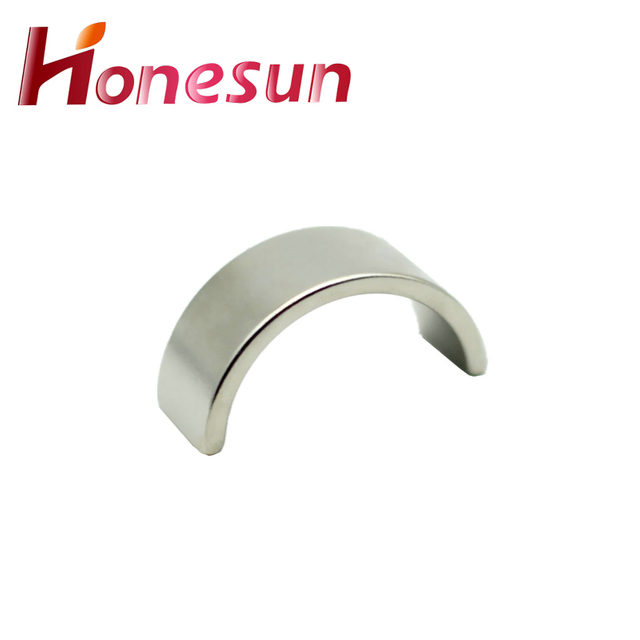
13.Are there any restrictions on the production or use of neodymium-iron-boron magnets?
Yes, there are restrictions on the production and use of neodymium magnets. Neodymium magnets are subject to the European Union's Restriction of Hazardous Substances (RoHS) directive, which restricts the use of certain hazardous materials in electrical and electronic equipment. Additionally, neodymium magnets are subject to the International Maritime Organization's (IMO) International Maritime Dangerous Goods (IMDG) Code, which regulates the transport of hazardous materials by sea. Finally, neodymium magnets are subject to the United Nations' International Atomic Energy Agency (IAEA) regulations, which regulate the use of radioactive materials.
14.Are there any potential hazards associated with neodymium-iron-boron magnets?
We maintain a certain amount of R&D investment every year and continuously improve operational efficiency to provide better services to our cooperative customers. Yes, there are potential hazards associated with neodymium magnets. They can be very powerful and can cause serious injury if swallowed. They can also pinch fingers and other body parts if two magnets are brought together too quickly. Additionally, neodymium magnets can interfere with pacemakers and other medical devices, and can damage electronic equipment if placed too close.
15.Are neodymium-iron-boron magnets affected by external magnetic fields?
We adhere to the principle of quality first and have a complete production quality management system and quality inspection process. Yes, neodymium magnets can be affected by external magnetic fields. They can be attracted to or repelled by other magnets, and their magnetic fields can be weakened or strengthened by other magnetic fields.
| Product Name | neodymium-iron-boron magnets |
| Material | Neodymium Magnet/Permanet Magnet |
| Size | Various kinds or according to customers' request |
| Shape | Disc, Block, Ring, Countersunk, Segment, Trapezoid, Irregular shapes are available, Or Customized Shapes |
| Grade | N35-N52, N35M-N50M, N33H-N48H, N30SH-N35SH and so on |
| Tolerance in size | +/-0.05 mm |
| Direction of magnetisation | Through the thickness or through the diameter |
| Applications | 1. Electronic areas: speakers, headphones, acoustics, sensors and so on. 2. Motor areas: generators, servo motors, micro-motors, vibration motors, elevator motor and so on. 3. Clean Tech Energy: Water flow enhancement, wind turbines. 4. Health care: MRI, medical treatment equipment. 5. Other industries: electric doors and windows, electric vehicle, electric bicycles, computer, phone, boxes, magnetic tools, notebook and so on |



1.Can neodymium-iron-boron magnets be magnetized in different directions?
Yes, neodymium magnets can be magnetized in different directions. This is done by using a special magnetizing tool that applies a magnetic field in the desired direction.
2.Can neodymium-iron-boron magnets lose their magnetism over time?
We focus on teamwork and communication to achieve common goals, We attach great importance to this detail. Yes, neodymium magnets can lose their magnetism over time. This is due to a process called demagnetization, which occurs when the magnet is exposed to high temperatures, strong electrical currents, or other magnets.
3.Are neodymium-iron-boron magnets used in headphones and speakers?
Our company has many years of neodymium-iron-boron magnets experience and expertise. Yes, neodymium magnets are used in headphones and speakers. They are used to create a strong magnetic field that helps to produce a clear and powerful sound.
4.Can neodymium-iron-boron magnets be custom-made for specific applications?
Yes, neodymium magnets can be custom-made for specific applications. Depending on the application, the size, shape, and strength of the magnet can be tailored to meet the specific requirements.

5.What are the common uses of neodymium-iron-boron magnets?
We operate our neodymium-iron-boron magnets business with integrity and honesty. 1. Motors: Neodymium magnets are used in the production of electric motors, such as those found in cordless tools, hard disk drives, and electric vehicles. 2. Speakers: Neodymium magnets are used in the production of loudspeakers, headphones, and microphones. 3. Sensors: Neodymium magnets are used in the production of sensors, such as those found in medical imaging equipment. 4. Generators: Neodymium magnets are used in the production of generators, such as those found in wind turbines. 5. Magnetic Separation: Neodymium magnets are used in the production of magnetic separators, such as those found in recycling plants. 6. Jewelry: Neodymium magnets are used in the production of jewelry, such as magnetic bracelets and necklaces.
6.About neodymium-iron-boron magnets production management system
Neodymium magnets production management system is a software solution designed to help manufacturers of neodymium magnets manage their production processes. The system provides a comprehensive set of tools to help streamline production, from tracking orders and inventory to managing quality control and production scheduling. It also provides detailed reporting and analytics to help manufacturers make informed decisions about their production processes. The system is designed to be user-friendly and intuitive, allowing users to quickly and easily access the information they need.
7.How do neodymium-iron-boron magnets compare to Samarium Cobalt Magnets?
neodymium-iron-boron magnets is not a product only, but also can help you comes to money-making. Neodymium magnets are the strongest type of permanent magnet available, and they are much stronger than samarium cobalt magnets. Neodymium magnets are also much more affordable than samarium cobalt magnets, making them the more popular choice for many applications. Neodymium magnets are also more resistant to corrosion and temperature changes than samarium cobalt magnets.
8.About neodymium-iron-boron magnets R&D capabilities
Neodymium magnets are a type of rare earth magnet that is composed of an alloy of neodymium, iron, and boron. They are the strongest type of permanent magnet available and are used in a wide range of applications, from consumer electronics to industrial machinery. Neodymium magnets are highly resistant to demagnetization and have a high coercivity, making them ideal for applications that require a strong magnetic field. Neodymium magnets are typically produced through a process of powder metallurgy, which involves mixing the alloy components together and then pressing them into a mold. The resulting magnets are then heat-treated to increase their coercivity and strength. Research and development of neodymium magnets is ongoing, with new alloys and manufacturing processes being developed to improve the performance of these magnets. Research is also being conducted into new applications for neodymium magnets, such as in medical imaging and renewable energy technologies.

9.About neodymium-iron-boron magnets production equipment
Neodymium magnets are a type of rare earth magnet that is made from an alloy of neodymium, iron, and boron. They are the strongest type of permanent magnet available and are used in a variety of applications, including motors, generators, and loudspeakers. The production of neodymium magnets requires specialized equipment, such as a vacuum furnace, a press, and a sintering furnace. The process begins with the mixing of the neodymium, iron, and boron powders in the correct proportions. The mixture is then placed in a vacuum furnace and heated to a high temperature. This causes the powders to melt and form a homogenous alloy. The alloy is then placed in a press and formed into the desired shape. Finally, the formed alloy is placed in a sintering furnace and heated to a high temperature, which causes the alloy to become a permanent magnet.
10.Are neodymium-iron-boron magnets affected by extreme temperatures?
Yes, neodymium magnets can be affected by extreme temperatures. They can become brittle and crack if exposed to temperatures above 175°C (347°F). They can also lose their magnetism if exposed to temperatures below -45°C (-49°F).
11.About neodymium-iron-boron magnets production skills training
Neodymium magnets are a type of rare earth magnet that is made from an alloy of neodymium, iron, and boron. They are the strongest type of permanent magnet available and are used in a variety of applications, from consumer electronics to industrial machinery. Neodymium magnets production skills training is designed to teach participants the basics of producing neodymium magnets. The training covers topics such as the properties of neodymium magnets, the manufacturing process, and safety considerations. Participants will also learn about the different types of neodymium magnets and their uses. The training is designed to give participants the knowledge and skills needed to produce neodymium magnets in a safe and efficient manner.
12.What is the magnetic field strength of a Neodymium Magnet?
The magnetic field strength of a Neodymium magnet can range from 10,000 to 14,000 gauss.

13.Are there any restrictions on the production or use of neodymium-iron-boron magnets?
Yes, there are restrictions on the production and use of neodymium magnets. Neodymium magnets are subject to the European Union's Restriction of Hazardous Substances (RoHS) directive, which restricts the use of certain hazardous materials in electrical and electronic equipment. Additionally, neodymium magnets are subject to the International Maritime Organization's (IMO) International Maritime Dangerous Goods (IMDG) Code, which regulates the transport of hazardous materials by sea. Finally, neodymium magnets are subject to the United Nations' International Atomic Energy Agency (IAEA) regulations, which regulate the use of radioactive materials.
14.Are there any potential hazards associated with neodymium-iron-boron magnets?
We maintain a certain amount of R&D investment every year and continuously improve operational efficiency to provide better services to our cooperative customers. Yes, there are potential hazards associated with neodymium magnets. They can be very powerful and can cause serious injury if swallowed. They can also pinch fingers and other body parts if two magnets are brought together too quickly. Additionally, neodymium magnets can interfere with pacemakers and other medical devices, and can damage electronic equipment if placed too close.
15.Are neodymium-iron-boron magnets affected by external magnetic fields?
We adhere to the principle of quality first and have a complete production quality management system and quality inspection process. Yes, neodymium magnets can be affected by external magnetic fields. They can be attracted to or repelled by other magnets, and their magnetic fields can be weakened or strengthened by other magnetic fields.
Honesun Industrial Co., Ltd. focuses on designing, researching, developing, manufacturing and selling Magnets and Magnetic Assemblies. With more than 15 years' rich experience and considerate services.we have been recognized as a reliable.



